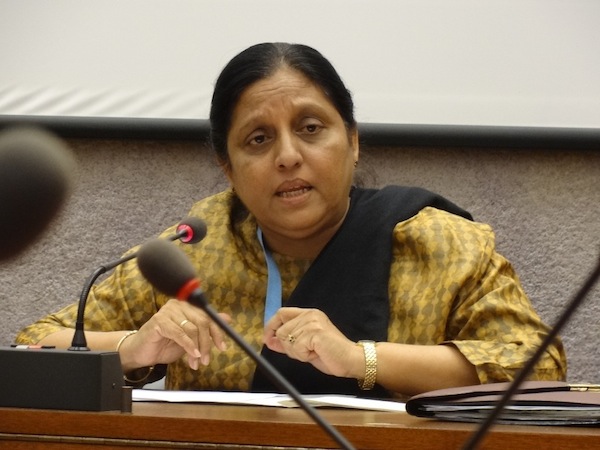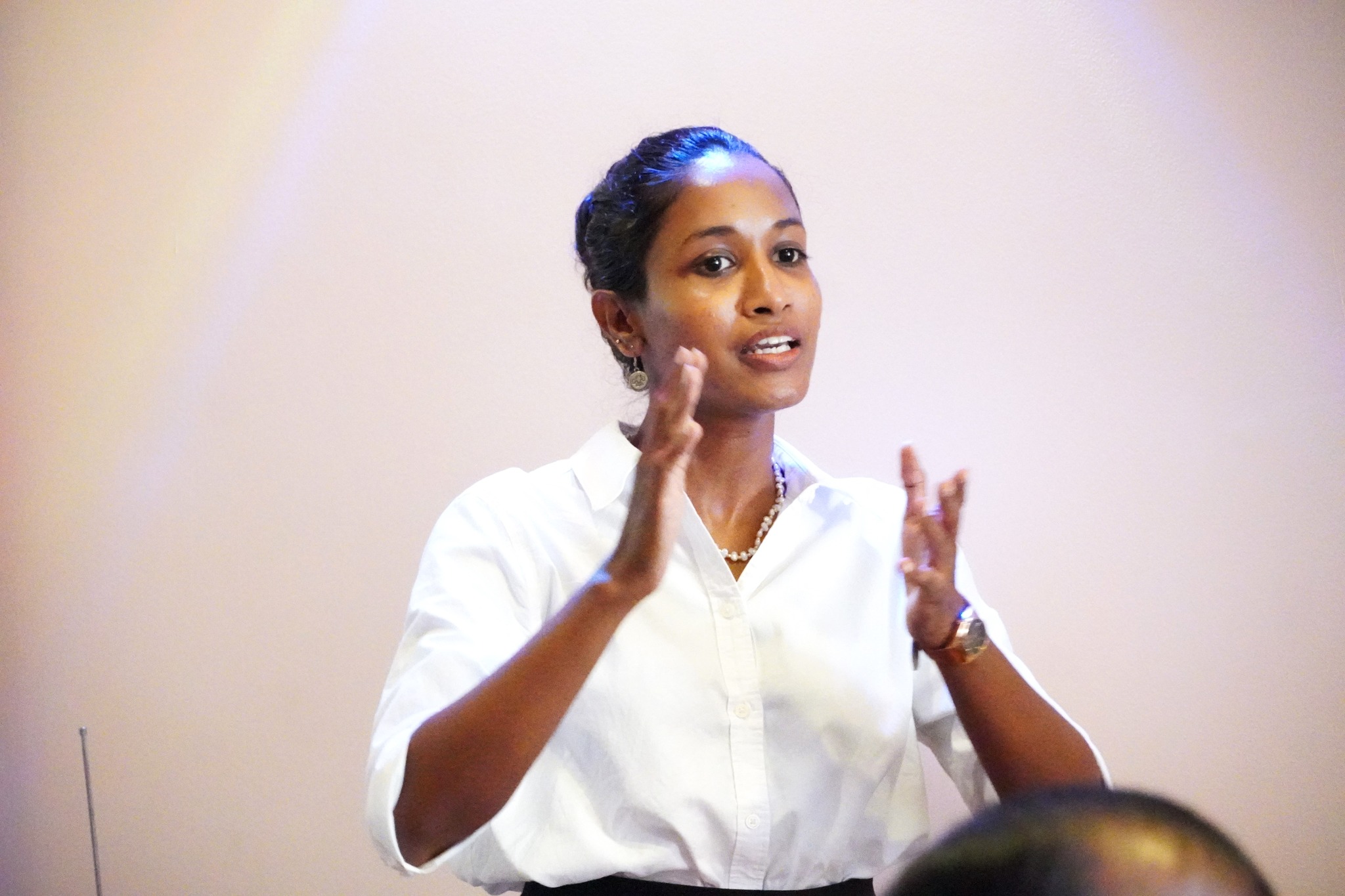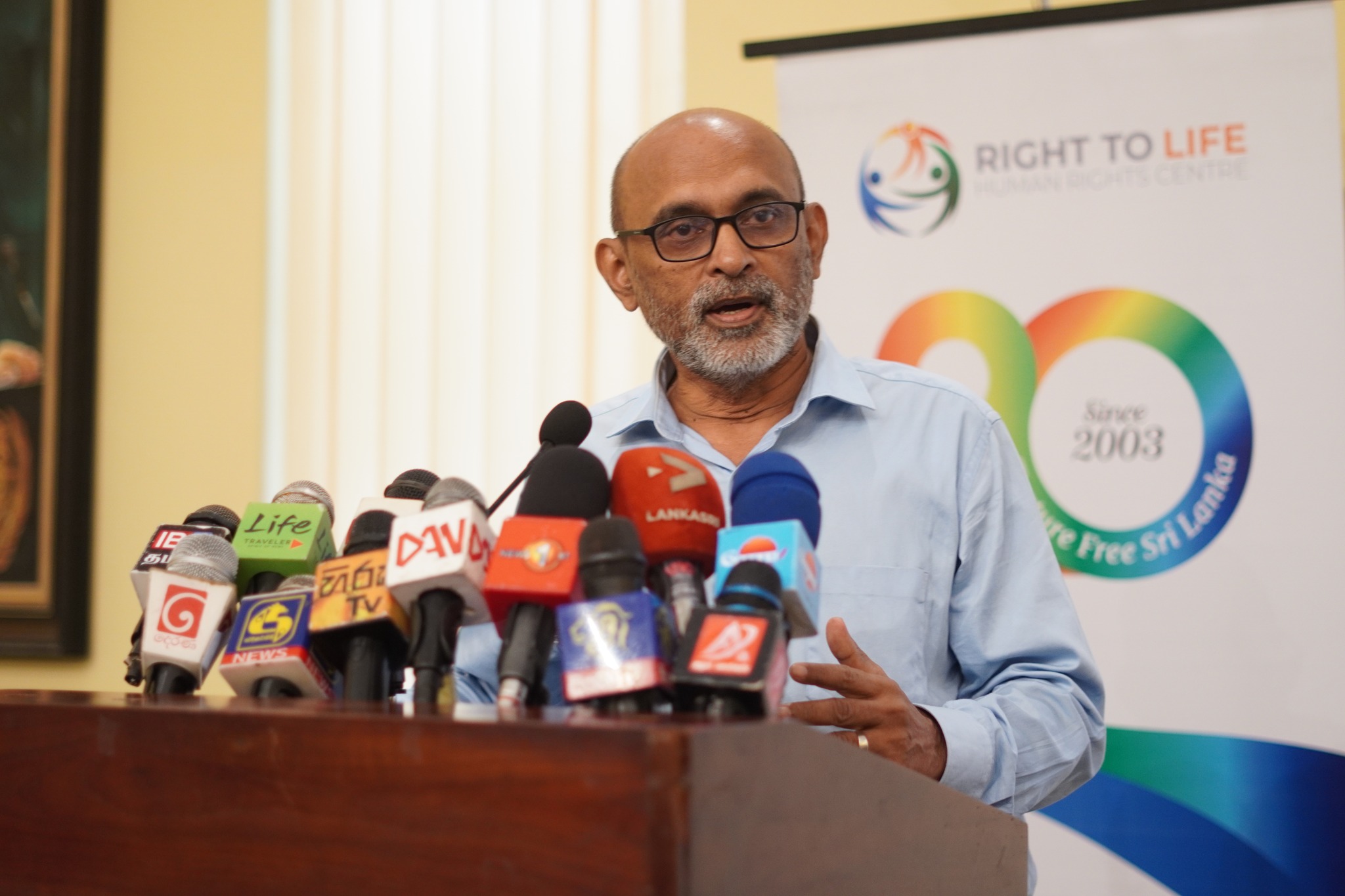“My son’s name is Muditha Kalansuriya. He is 21 years old. After completing his Advanced Level exams, he was very eager to join the army. That’s why he kept telling us about enlisting, but we didn’t discuss it much with him,” said Kanthi Kalansuriya.
Kanthi Kalansuriya, an active member of the Organization of Families of Disappeared Army Personnel, worked alongside Chairperson Visaka Dharmadasa and other parents in various efforts to search for their missing children.
Introducing her son, she said, “My son was born on October 24, 1974. He has two younger sisters. Despite knowing our disapproval, he secretly applied to join the army. He enlisted in 1994. Within a week, he was sent to Pakistan, and then later to India. Both training programs were completed in 1996. After finishing the training, he was immediately deployed. He came home in May and June. My son served in the Sinha Regiment.
“To the best of our knowledge, he was involved in ‘Operation Sath Jaya.’ It was an effort by the army to recapture Kilinochchi. Advancing along the A9 road from Elephant Pass, the army succeeded in retaking Kilinochchi at the end of September. After September 30, 1996, we hadn’t heard from him, so we called his regiment, but they had no information.
“Even his regiment didn’t inform us about his disappearance. Since he hadn’t returned home for a while and hadn’t called, we decided to visit them ourselves. But even then, the regiment didn’t say he hadn’t returned. A relative of mine, a general, suggested we wait a few days, saying he might return from somewhere. Though the regiment claimed to be searching, we realized that wasn’t happening. We decided to start our own search.
“Two of his friends in the army told us they saw him during the operation. They said he had stated he wouldn’t abandon the battalion and was staying back, urging others to escape if they could. Intense fighting took place in the Paranthan area. An officer who had been with him managed to escape and confirmed seeing Muditha.
“My son attended the army interview with his class teacher, who still recalls the effort she made to help him. They had even asked whether his mother would come to sign the documents since she hadn’t. The officer had inquired if his father would sign, but my son replied that if needed, he could find someone else to do it. My husband, a businessman, wanted Muditha to join the family business. After his disappearance, our daughter took over managing the business.
“We always believed he was alive. I waited until 2009, hoping for his return. Probably no one else in Sri Lanka consulted astrologers as much as we did. We traveled all over the country. We released thousands of balloons in the north and east with messages asking for information. We even informed religious leaders, including Cardinal Malcolm Ranjith, and sought their blessings.
“We never thought he was gone. No matter what, we believed he must be somewhere. We sought comfort through various religious rituals. We avoided traditional Sinhala New Year celebrations or any festivities. Muditha’s friends, including his best friend who studied with his books and went to university, visited us often to console us.
“Eventually, we had to focus on the work of our two daughters. When Muditha disappeared, our youngest daughter was just preparing for her Ordinary Level exams.”
After the war ended, families of missing soldiers visited war-affected areas to search for their loved ones. “After 2009, we went to those areas with great hope. We visited camps and mass grave sites. But we didn’t find any leads. We found fragments of belts and wallets, but nothing that could be identified.”
Like many relatives of the disappeared, Kanthi Kalansuriya has not given up hope of seeing her son again. “We are still waiting for him to return. I haven’t performed any final rites or religious rituals for him. Even though my relatives have done so, I haven’t. The only religious act I do is on his birthday.”


